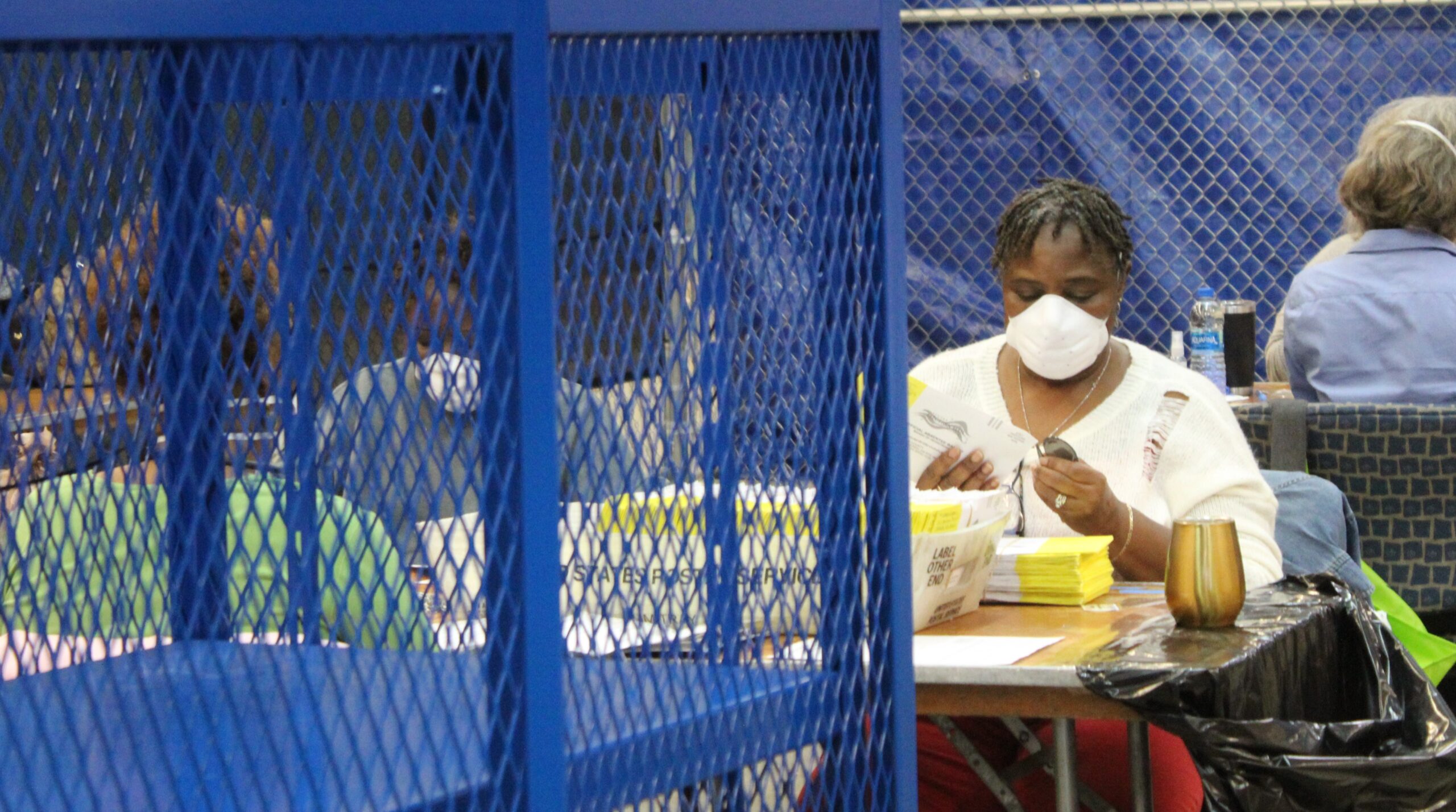Debate Over Absentee Voting Looms In Georgia Legislature After Democrats Dominate Mail-in Vote

Elections workers in Georgia worked countless hours from October through January, processing millions of absentee ballots.
In November’s presidential election and the two Senate runoff races last week, Democratic candidates in Georgia received twice as many absentee votes as Republicans.
That’s led to a call from some in the Georgia GOP to restrict mail-in voting and do away with the “no-excuse” provision. It’s a law that’s been on the books since 2005, when, as Democrat Stacey Abrams notes, it was passed by Republicans.
“As long as it was a guarantee for their victories, it was a completely useful system,” said Abrams. “Now that they’ve realized that the diversity of Georgia means that more people will use that operation, they are deeply concerned about it.”
Some Senate Republicans in Georgia have made allegations of widespread fraud with absentee voting in Georgia’s November presidential election. These claims have not been supported by facts. An audit of absentee ballot signatures in Cobb County revealed only two signatures that should not have been approved.
The plan to end no-excuse absentee voting also has the support of the Secretary of State’s office. Gabriel Sterling says the three weeks of early voting, Election Day voting and processing an increasing number of absentee ballots puts too much extra work on counties.
“These people are understaffed, underpaid, they’re under-resourced, so something has to give on that one,” said Sterling.
A state official well versed in absentee voting is Kim Wyman, Secretary of State in Washington, where voters almost exclusively cast ballots by mail.
“You know, absentee ballots or vote by mail ballots are very labor-intensive,” said Wyman.
As Georgia legislators debate changes to election laws in the coming weeks, Wyman says it’s the counties who should be consulted.
“It really is important to have election officials at the table when you start making policy decisions of ‘what are the impacts going to be of that policy change,’” said Wyman.
While ending no-excuse absentee voting has the support of some in the GOP, House Speaker David Ralston said last week that he favors keeping it so long as security measures are stepped up.








